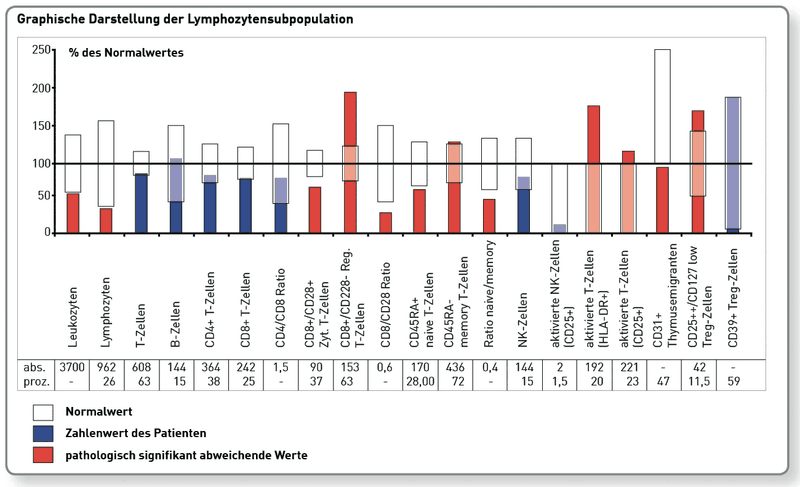Immune System – Analysis + Diagnostics for Immunological Diseases
Immune system diagnostics are of central importance in my practice. Especially when we consider the application of micro-immunotherapy, the immune status is of central importance.
The Medical Society for Micro-Immunotherapy recommends performing this immune diagnostic primarily for:
- Viral infections and their consequences (chronification and recurrence)
- Autoimmune diseases
- Oncological processes
- Inflammatory processes
- Allergies
- Stress-related diseases 1
The starting tool for immune diagnostics is the so-called lymphocyte typing. This diagnostic, developed specifically for
However, the immune status also provides us with important indications as to which further examinations may be helpful in determining the causes of your conditions.
For this purpose, the so-called helper cell typing, the inflammation profile, or serology are suitable.
Finding the Right Balance
By means of the so-called helper cell typing, imbalances and their underlying causes can be identified. This allows us to distinguish very well between a rather inflammatory or allergic process, a chronic inflammatory disease, or altered immune tolerance, which is very significant for further diagnostic steps. This form of diagnostics is particularly important for diseases with immunological imbalances, such as autoimmunity, cancer, allergies, and chronic recurrent infections.
If the findings suggest a possible chronification of a viral infection, we arrange for serology to identify the pathogens.
When Viruses Persist
Recurrent infections with the Epstein-Barr virus (EBV) are well-known. However, other viruses can also cause significant symptoms many years after an infection. These include, among others, viruses of the herpes family (HPV), cytomegaloviruses (CMV), chlamydia, varicella-zoster viruses (shingles), and others.
After an infection, viruses remain in the body and are kept under control by the immune system. In certain situations, this is not successful, leading to the appearance of typical symptoms. For EBV, these classically include Chronic Fatigue Syndrome, unclear pain conditions, especially in the joints, many other chronic diseases, and even
autoimmune diseases
(e.g., Multiple Sclerosis, Lupus Erythematosus, etc.), tumor diseases and allergies are associated with an EBV re-infection.
Classic diagnostics via IgG antibody determination are not sufficient here, as they only indicate whether someone has previously had an infection. For the detection of possible re-infections, we arrange for more detailed laboratory tests.
Source

